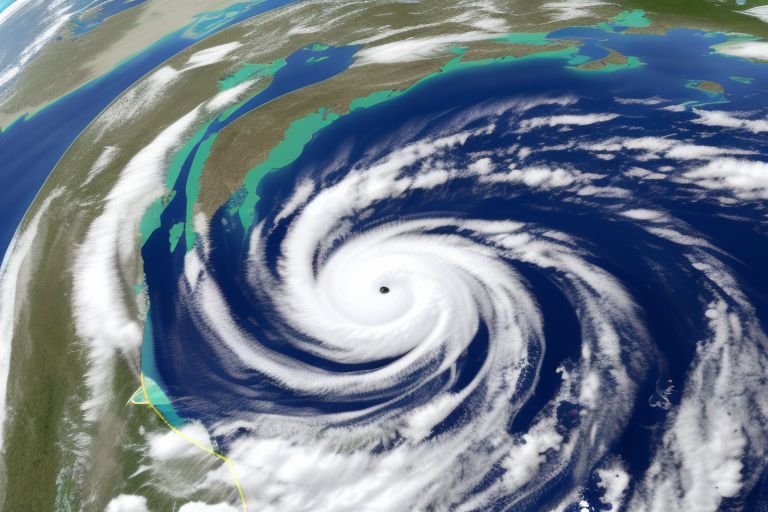A team of researchers at the Florida Institute of Technology has risen to the challenge and created an artificial intelligence system that can accurately predict the intensity and, arguably, the course of hurricanes. Announced at a press conference held at the University’s Melbourne campus today the new technology has the capability of changing the face of storm forecasting that will enhance emergency planning in the state.
This ground-breaking new AI based weather prediction system was spearheaded by Dr. Ashok Pandit, a meteorologist who retired from Florida Tech after 42 years of service. The computer system, which is called ‘HurricanAI’, involves an application of machine learning technique to big volumes of historical data on the weather, satellite imagery of vulnerable regions and current climate information.
With respect to the breakthrough, Dr. Pandit further said, ‘HurricanAI is a giant leap forward in our capacity to model hurricanes. It can also analyze and make decisions based on the storm data that have accumulated for decades, which would be impossible for human beings to do so.
HurricanAI’s development arrives at the right time because climate change has not only increased the amount of hurricanes but also the severity of hurricanes that flood the United States coast. With the long stretch of shoreline and many areas of developing populations, hurricanes would immensely benefit Florida.
Specifically, a detailed, professionally moderated press conference with the research team and the participation of HurricanAI involved the authors in presenting how the application works and tried to forecast the tracks of some modern hurricanes. It possessed an accuracy thirty percent higher than those of the conventional forecasting techniques, especially when identifying rapid intensification events, which have proven difficult for climatologists in recent years.
Other enthusiasts of the new complex of resources presented at the event who could be covered include the director of emergency management for the state of Florida, Kevin Guthrie. HurricanAI could become the tool our state needed to step up its game when it comes to emergency preparedness. Higher levels of accuracy lead to efficient usage of available resources, effective implementation of evacuation procedures, and overall, lives being saved,” Guthrie said.
Florida is beginning to gain recognition as a technological haven, especially in terms of, AI and disaster coping mechanisms to which HurricanAI forms part. There have been consistent efforts by the state officials to popularize programs to lure technology firms and research centers to solve key issues affecting the environment.
Florida Tech’s accomplishment has already drawn the attention of national weather agencies along with global research based institutions. The National Hurricane Center has indicated its readiness to use HurricanAI in its array of tools once the technology is tasted and tested by other institutions.
As with most of the AI systems developed, the researchers who created HurricanAI were keen to note that the system is not a threat to human meteorologists but rather complements them. Dr. Megan Mark, a member of the research team and the recent Young Scientist Award laureate, said: “That is why we want to offer these forecasters an additional option that they can use to make more accurate conclusions, at least in the context of highly unpredictable storm scenarios.”
The development of HurricanAI also points out that scientific problems can only be solved with such integration of components as obtained from combining the efforts of different fields of science. This work involved scholars from the Florida Tech College of Engineering and Science, the School of Computing, and the Department of Ocean Engineering and Marine Sciences.
As Florida remains vulnerable to the effects of climate change, new solutions like HurricanAI come as a solution that can make residents more resilient to the effects of future hurricanes. In addition to hurricane prediction, the technology has other possibilities and can be used in other fields, such as weather forecasting and climatology.
In the near future, the Florida Tech team aims at improving the capacities of HurricanAI, and further the potential of the models for prognosis of other types of storms including tornadoes and thunderstorms. To add to this, the university has also made some new initiatives for the formation of a new center, namely the centre for Artificial Intelligence and Climate Resilience.
Hurricane season comes and the introduction of HurricanAI is as a good a time as any to remind people that there are scientists and developers out there working hard to make sure that the Florida communities and infrastructures are safe. Experts and residents believe that as the system continues its developmental testing and verification, there will likely be higher accuracy rates of storm forecasts in the succeeding years.


